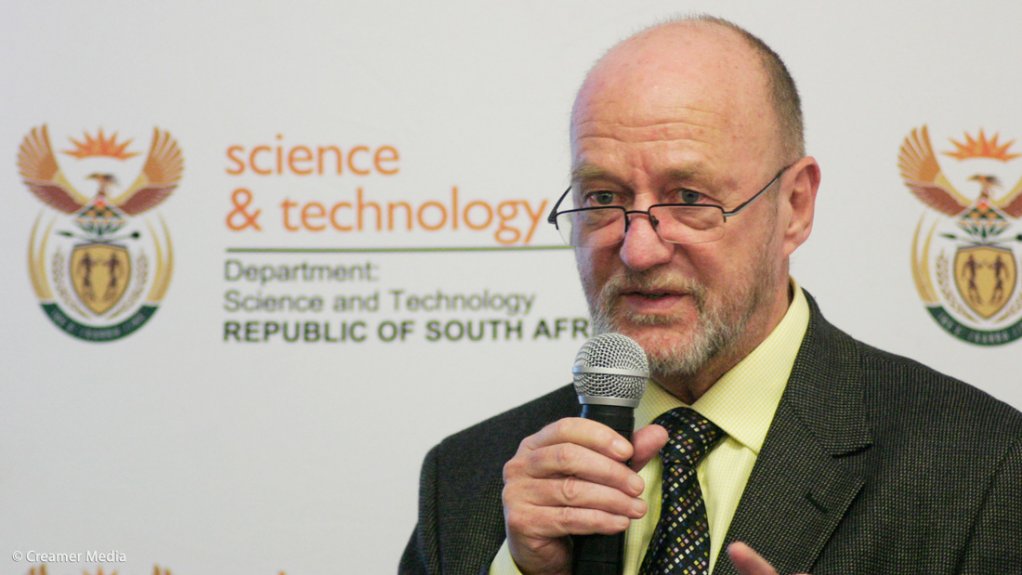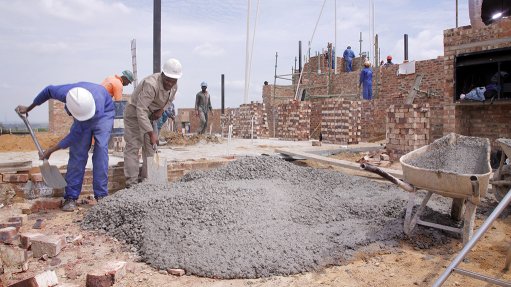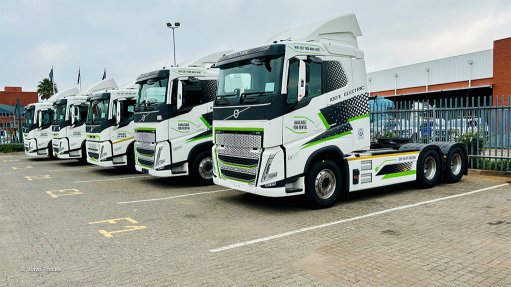Local R&D capability boosted by launch of maths, science research centre
Science and Technology Minister Derek Hanekom has officially launched the new Centre of Excellence (CoE) in Mathematical and Statistical Sciences at the University of the Witwatersrand (Wits), in Johannesburg, bringing to 14 the number of CoEs established by the National Research Foundation (NRF) and Department of Science and Technology (DST) since 2004.
The stable of CoEs were designed to take the lead in researching various areas of national interest and accelerating the delivery of “appropriate human resources and knowledge capacity”, thus, enhancing the international competitiveness of South Africa and ensuring its global competence in terms of research and development capabilities.
The newly launched CoE in Mathematical and Statistical Sciences – which followed the publication of an international review panel report describing South Africa’s mathematical sciences research as “isolated at many levels” – would devote “considerable” focus to earth and environmental sciences, enabling an improved understanding of complex, dynamic systems associated with these fields.
The centre would also contribute directly and indirectly to the Square Kilometer Array initiative and would assist the project with the storage and assimilation of the “huge volumes” of data it generated.
Wits School of Computational and Applied Mathematics head Professor Ebrahim Momoniat explained at the launch on Monday that the primary research focus of the centre would be underpinned by the theme, ‘Mathematics of the Earth and Environment’, which was split into a further two subthemes reflecting the “pure and applied nature” of mathematics.
These two subthemes are ‘Mathematical Paradigms for Earth and Environment’ and ‘Mathematical, Statistical and Computational Modelling of the Earth and Environment’.
“It is under these two themes that the centre will bring together research excellence that exists in universities, research entities and other CoEs to make a major contribution to the National Development Plan (NDP), the training of the next generation of scientists and the development of a knowledge-based economy. This centre gives us an opportunity to be at the forefront of new research,” Momoniat commented.
The official launch of the DST-NRF CoE in Mathematical and Statistical Sciences brings to four the number of CoEs hosted at Wits, with the additional three centres dedicated to advancing research in the fields of strong materials, paleosciences and biomedical tuberculosis.
Delivering the keynote address, Hanekom explained that the DST-NRF CoE Programme was one of several instruments in place to bolster local innovation.
“On one hand, these centres enable us to capitalise on our country’s natural advantages, such as large platinum deposits, a clear view of the southern skies and paleontological fossils. On the other hand, the centres assist in identifying our disciplinary weaknesses or socioeconomic threats and then set about addressing them,” he commented.
Hanekom further described mathematics as the “spinal cord” of science, engineering and technology development and, as such, it was critical to the country’s national system of innovation as well as its future as a competitive, knowledge-based economy.
“This is most obviously the case, perhaps, in respect of applied and computational mathematics, but these cannot be divorced from pure mathematics, thus, it is effectively true of mathematics overall.
“This is why the NDP places such importance on improving mathematics education from primary school through to university [level] and why we, and the rest of the world for that matter, need increasing numbers of doctorates in mathematics, among other disciplines,” said Hanekom.
NRF CEO Dr Albert van Jaarsveld assured attendees at the launch that a “strict” procedure was followed during the selection process of the CoE’s host institution.
“The awarding of the centre follows a peer review system, and nobody at the NRF or the DST influences or makes the decision [as to which institution would be awarded host status]. Universities are required to put together a proposal on which the merits of their case alone are examined,” he emphasised.
Comments
Announcements
What's On
Subscribe to improve your user experience...
Option 1 (equivalent of R125 a month):
Receive a weekly copy of Creamer Media's Engineering News & Mining Weekly magazine
(print copy for those in South Africa and e-magazine for those outside of South Africa)
Receive daily email newsletters
Access to full search results
Access archive of magazine back copies
Access to Projects in Progress
Access to ONE Research Report of your choice in PDF format
Option 2 (equivalent of R375 a month):
All benefits from Option 1
PLUS
Access to Creamer Media's Research Channel Africa for ALL Research Reports, in PDF format, on various industrial and mining sectors
including Electricity; Water; Energy Transition; Hydrogen; Roads, Rail and Ports; Coal; Gold; Platinum; Battery Metals; etc.
Already a subscriber?
Forgotten your password?
Receive weekly copy of Creamer Media's Engineering News & Mining Weekly magazine (print copy for those in South Africa and e-magazine for those outside of South Africa)
➕
Recieve daily email newsletters
➕
Access to full search results
➕
Access archive of magazine back copies
➕
Access to Projects in Progress
➕
Access to ONE Research Report of your choice in PDF format
RESEARCH CHANNEL AFRICA
R4500 (equivalent of R375 a month)
SUBSCRIBEAll benefits from Option 1
➕
Access to Creamer Media's Research Channel Africa for ALL Research Reports on various industrial and mining sectors, in PDF format, including on:
Electricity
➕
Water
➕
Energy Transition
➕
Hydrogen
➕
Roads, Rail and Ports
➕
Coal
➕
Gold
➕
Platinum
➕
Battery Metals
➕
etc.
Receive all benefits from Option 1 or Option 2 delivered to numerous people at your company
➕
Multiple User names and Passwords for simultaneous log-ins
➕
Intranet integration access to all in your organisation





















